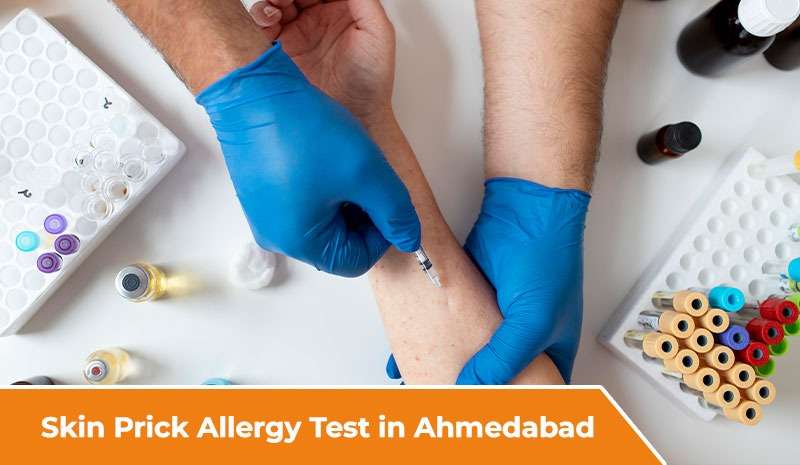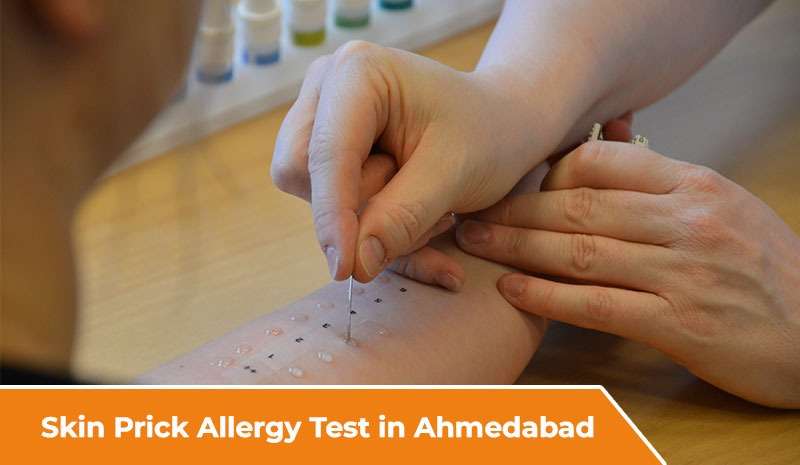Many are allergic to one thing or another, which may cause sneezing fits, skin irritation, or worse health problems. In Ahmedabad, if you find yourself with allergies without any apparent reason, then a skin prick allergy test can be your ticket to finding the culprit behind the discomfort. Let’s look at when it’s prescribed, what the test is like, and how it works as an effective management tool for allergies.
What is a Skin Prick Allergy Test?
A skin prick allergy test is a diagnostic procedure that identifies specific allergens triggering your symptoms. During the test:
- Small amounts of potential allergens are introduced to your skin using a tiny needle or lancet.
- If you’re allergic to a substance, the skin will react with redness or swelling at the site.
- The results are quick, often visible within 15–20 minutes.
Common allergens tested include:
- Pollen
- Dust mites
- Pet dander
- Mold spores
- Foods like nuts, dairy, and shellfish
When Is a Skin Prick Allergy Test Recommended?
Not everyone suffering from an allergy requires a skin prick allergy test. This test is specifically advised in the following situations:
1. Recurrent Allergic Symptoms
If you experience recurrent symptoms, such as:
- Sneezing or running nose
- Constant itching or watery eyes
- Skin rashes or eczema
- Shortness of breath
2. Patients with Asthma Who Have Known Allergens
Some patients with asthma might have their condition worsened by allergens such as pollen or dust mites. This is where a skin prick test might be useful to identify these allergens and thereby improve the control of asthma.
3. Chronic Rhinitis or Sinusitis
Chronic nasal congestion, rhinorrhea, or sinus infections might be related to allergies. Knowing what triggers it leads to proper management.
4. Food Allergy Issues
If you suspect an allergic reaction to certain foods but are unsure which one, this test provides clarity.
5. Non-responsive to Over-the-Counter Medications
For patients whose symptoms do not improve with regular antihistamines, pinpointing specific allergens may help refine treatment.
Benefits of a Skin Prick Allergy Test
- Quick and Reliable Results: Know your allergens in less than 30 minutes.
- Non-Invasive: Minimal discomfort compared to other diagnostic methods.
- Personalized Allergy Management: Helps your doctor create a targeted treatment plan.

What to Expect During the Test
Understanding the process can help alleviate any anxieties:
1. Preparation
- Do not take antihistamines or allergy medications for at least three days before the test.
- Dress comfortably so that easy access to your arm or back is possible where the test will be performed.
2. Procedure
- The allergist cleans your skin and applies small drops of potential allergens.
- Using a small prick, each drop will allow an allergen to enter through the skin.
- Note the reaction – an elevated bump or redness indicates an allergy.
3. Post-Test Care
- Mild itching or swelling is common and short-lived.
- Your allergist can discuss your results and recommend a treatment plan immediately.
 +919979891672
+919979891672 











No Comments